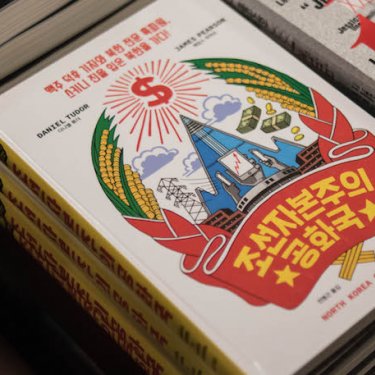North Korea sentences South Korean journalists to death in absentia

Reporters Without Borders (RSF) condemns the death sentences that North Korea’s central court has passed in absentia on four South Korean journalists because of their positive reviews of an “insulting” book about North Korea’s growing market economy.
The sentences, which have “no right to appeal,” were passed on Son Hyo-rim of the conservative newspaper Dong-A Ilbo and Yang Ji-ho of the similarly conservative newspaper Chosun Ilbo, and on the newspapers’ publishers, Kim Jae-ho and Pang Sang-hun respectively.
The offending book, published in English in 2015 with the title of “North Korea Confidential,” was republished in Korean translation in South Korea last month with the title of “Capitalist Republic of Korea,” an allusion to North Korea’s official name, the Democratic People’s Republic of Korea. In the cover photo, a dollar sign replaces the red star.
The court said the book had “defamed and distorted” North Korean reality but its verdict did not mention its authors, the Economist magazine’s former Seoul correspondent, Daniel Tudor, and James Pearson, a Seoul correspondent for Reuters. The sentences will undoubtedly help to publicize the book, called “one of the best books of 2015” by the Economist.
Absurd and dangerous sentences
RSF urges North Korea to immediately quash these absurd sentences. “These journalists did nothing wrong,” said Cédric Alviani, the head of RSF’s East Asia bureau. “They just did their jobs, which was to inform their readers by reading and reviewing this book. We call on the South Korean authorities to place these journalists under the closest possible protection.”
One of the world’s most radical totalitarian regimes, North Korea is ranked last in RSF’s 2017 World Press Freedom Index. It is given to extreme rhetoric that is not always followed up by action. In June, Pyongyang called for the execution of former South Korean President Park Geun-hye and her intelligence chief for allegedly plotting to kill North Korean leader Kim Jong-un.
In 2012, North Korea threatened to bomb South Korean media outlets that had criticized celebrations for the 66th anniversary of the Korean Children's Union, in which 20.000 children were mobilized for the event. South Korea’s Channel A called it “a Hitler-style political show.”
Pyongyang is capable of carrying out assassinations beyond its borders but, because of the logistics involved, the practice is reserved for major political targets. The latest victim was Kim Jong-nam, Kim Jong-un’s half-brother and potential successor, who was murdered at Kuala Lumpur international airport in Malaysia on 13 February.
The most recent successful assassination in South Korea was in 1997, when Yi Han-yong, a defector distantly related to Kim Jong-il, was gunned down outside his Seoul home.



